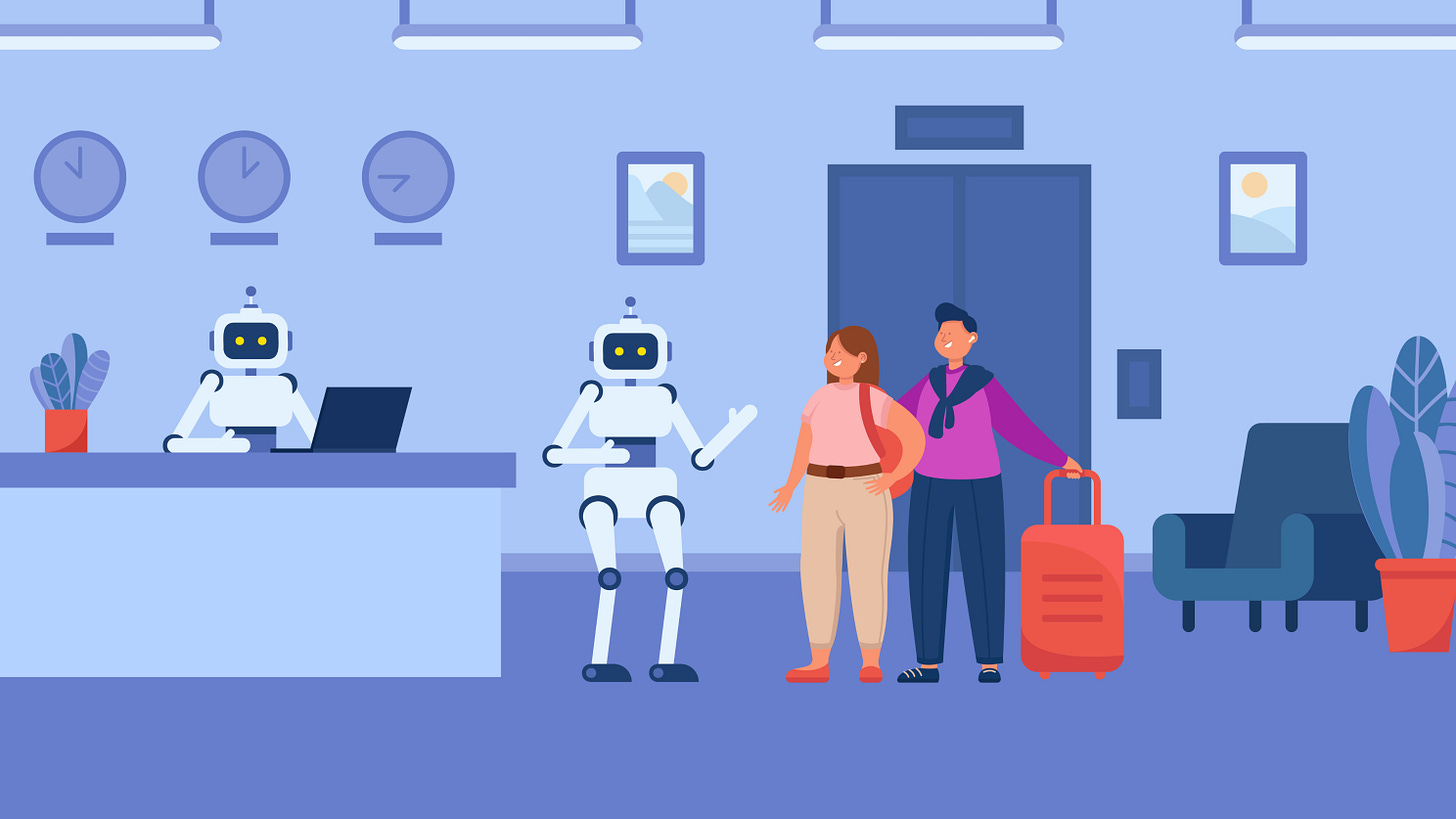The Future of Work: How Automation is Changing the Landscape
The future of work is changing, and it's not just because of the pandemic. Automation is the real game changer, the new boss in town, and it's here to stay. But before you start panicking and stocking up on instant foods, let me tell you why you should be excited about it. Automation is not here to take our jobs, it's here to make them better.
In the iconic movie "The Terminator," we saw a bleak future where machines have taken over the world and humans are fighting for survival. While we may not be quite at that point yet, automation is certainly changing the landscape of the workforce. But instead of being a cause for alarm, this shift towards automation presents an opportunity for a new and exciting future of work.
One of the most significant ways that automation is changing the workforce is by taking over repetitive and manual tasks. This allows employees to focus on more complex and strategic tasks that require human creativity and decision-making. For example, instead of a factory worker spending hours on an assembly line, they can now use automation to handle those tasks and spend their time on more technical and innovative tasks such as quality control and maintenance.
By eliminating human error, automation will lead to fewer mistakes and a higher quality of work. This will save time and money in the long run. And with automation, we'll be able to process and analyze data faster than ever, leading to new insights and discoveries.
Automation is also changing the way we think about jobs. With the rise of artificial intelligence and machine learning, there is a growing need for workers with technical skills in areas such as data analysis and programming. This shift towards a more technologically-skilled workforce presents a new opportunity for employees to upskill and adapt to the changing landscape of work.
Another way automation is changing the workforce is by creating new jobs. As automation takes over repetitive tasks, it opens up new opportunities for workers in areas such as design and maintenance of automation systems. Additionally, automation can also lead to the creation of entirely new industries and business models.
However, it's important to note that automation also poses challenges to the workforce. There is a fear that automation will lead to job loss, particularly in industries where repetitive tasks are prevalent. But instead of viewing automation as a threat, we should see it as an opportunity to create a more efficient and innovative workforce.
But there's a catch, the way that we work is also going to change. With automation, we'll be working alongside robots and AI. This means that we'll need to learn new skills to work effectively with technology. This is known as reskilling and it's going to be essential for workers to stay relevant in the job market.
In conclusion, automation is changing the landscape of the future of work, and it's a change that we should welcome with open arms. It's going to make our lives easier, and more efficient, and create new jobs. But to stay ahead of the curve, we'll need to learn new skills and adapt to working alongside technology.
As John Connor in The Terminator said "The future's not set. There is no fate but what we make for ourselves." Don't be afraid of the new boss in town, embrace it, and make it work for you. The future of work is looking bright, and we're the ones in charge of it. Trust me, automation is the best thing that could happen to us, and it's time to stop fearing it and start embracing it.




